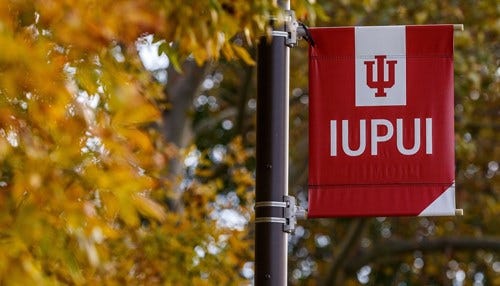IUPUI Researcher to Study Quality of Life in Cancer Patients
 (photo courtesy IUPUI)
(photo courtesy IUPUI)
Subscriber Benefit
As a subscriber you can listen to articles at work, in the car, or while you work out. Subscribe NowAn IUPUI psychologist has been awarded a nearly $2 million grant from the National Cancer Institute for her research to help cancer patients, in advanced stages of the disease, to still find quality of life while accepting the eventual outcome.
The university says Professor Catherine Mosher is investigating a novel acceptance-based approach of facing the disease, while fighting the fatigue and other systems seen in late-stage cancer patients.
"Every palliative care physician and oncologist will tell you that improving quality of life is central to their care of advanced cancer patients," said Mosher, an associate professor of psychology in the Purdue School of Science. "We help patients identify what’s most important to them — whether it’s being an engaged parent or their spirituality — and then to set specific action steps rooted in those values."
Mosher cites an example where a patient’s family may plan to go bowling. While the patient may not be strong enough to bowl all night, she can still cheer on her family and engage in quality time.
"A lot of patients withdraw from meaningful social activities when they’re fatigued; we’re trying to get them back in touch with their values and consider ‘Is there a piece of this social activity that I can still do?’"
For this study, Mosher’s team will work with metastatic breast cancer patients participating in Acceptance and Commitment Therapy. Mosher says ACT aims to increase their mindfulness or present-moment acceptance of thoughts, feelings and symptoms.
"That’s the heart of ACT — getting in touch with your values, what’s important to you and, in the case of an advanced cancer patient, engaging in a feasible aspect of that valued activity," Mosher said.
While ACT is widely available and used by therapists to treat other conditions, Mosher aims to provide the evidence base for its effectiveness in the cancer community.
